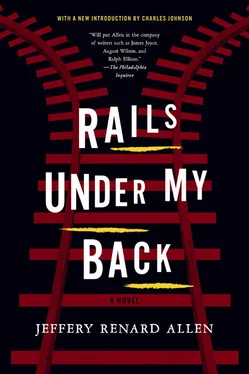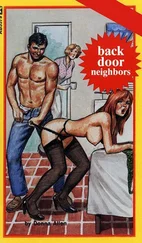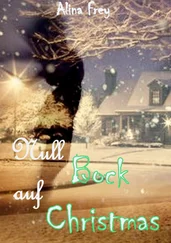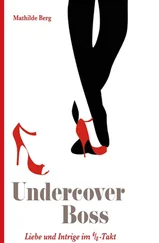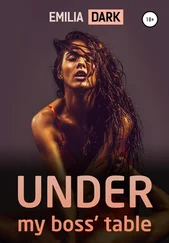A swirl of summer chickens. An invisible rooster strutting in the sun. Used to have a rooster, Big Judy said. Henry, we called him. Never crow when he sposed to. Never at dawn. But five or six times during the day. But he ruled. If you see my little red rooster, please drive him home. Been no peace in the barnyard since he been gone. The vapors from three or four hogs fenced stomping and grunting in the pen. Big Judy dumped pails and pails of rotten fruit and kernel-depleted corncobs. Hogs roll, a boiling sea of stinking pink.
The ravine behind and just down the hill from the house everyone called the snake pit, a serpent-stricken hissing valley, smoke wreaths during the day and mist at night. Over the years, Big Judy had lost several hogs and chickens to the pit. But the old people would come and sit, bending the legs of the metal folding chairs under their weight of creaking years, in the shade of her concrete driveway, unbothered by the chicken and hog noises and smells or the threat of scorpions and snakes, and suck the sap of memory.
Koot had a long life, Big Judy said. And Mr. Footy treated her good. Now, that Buck. He called me every kinda name, and ain’t none of them in the Bible. Jus the meanest cuss. Couldn get him to walk ten feet down the road and ask Koot fo a cup of sugar.
A flower blazed between an angle of roots. You took a close curious look. The yellow jacket stung you, your jaw puffed up and threatened to explode by the time you made it back to the house and Big Judy powdered it with tobacco — some of Mr. Buck’s chewing snuff — to smoke out the swelling. Bandaged your face good with a shroud of handkerchiefs.
Your jaw swelled so your ears hurt. Pain new and undreamt of. Thankful that you had not been attacked by a snake or one of those blue-green lizards that Big Judy called scorpions. Better off than Koot, killed in a car accident — no, a crash, that claimed, yes, claimed, staked with jagged glass and twisted spikes of metal, the life of a pregnant white woman and the white baby black in her belly, and a second woman who was driving Koot to the hearing-aid store, thrown through a car’s windshield— If it means anything, if it can help, she was killed instantly; she didn’t suffer —her reluctant feet still planted to the passenger side of the floor where they had refused to follow her body roadside. Feel yourself driving through a wet curtain (beads, yes, beads) of glass, like jetting from beneath a pool to break water’s surface; feel yourself flying through air, a bird sailing wind in slow motion, then feel your face covered with crumbs of glass, and a numbing sensation in your feet.
THE FAMILY SAT DOWN TOGETHER, their knees close under a table covered with a fresh white cloth. The room heavy with greasy odors. The delicate aroma of yellow watermelon that grew wild in unattended winds. Cool iced tea that people drank year-round. The graveyard preacher joined the family at the reception table. Word had salted down to him. Or he had invited himself. His plain black three-piece shined the satin gloss of a raven’s wing. Small, but a big horse head and face of a man. Processed hair flowing manelike. He found it easy to blend his religion and his appetite. (He wiped his mouth with a paper napkin after every bite.) Gracie matched him word for word. Angels angled out in their speech.
Sister, the preacher said, you know your Bible. His chin hung close to Gracie.
I try. She stirred with the start of a laugh.
Yes indeed.
The preacher’s mouth smelled like money. Hatch had already endured two preachers that day. Now a third. Preachers troubled him. And the presence of this one strengthened his inclination to spit in every preacher’s eye.
The preacher led the family in prayer, rising on food steam to heights invisible to the eye. With his paper napkin, he wiped the prayer from his lips.
Keep the faith. By and by God reveals his divine plan to man. And with that, he heaved himself up from the table and quit the house.
I HAD TO PUT THE GUN ON MR. BUCK, Dave said. I asked him, What you call my mamma? I told that motherfucker. Say it again. Big Judy screamin, Dave, it ain’t worth it. Shit, it’s worth it if I say it is.
The earth cooled. A heat-hushed night. The heavens low-hanging. Moonlight soft-showered the window. You rested under the white bedspread, translucent from use, safe now, the wire screen having been checked and double-checked so that no bat would fly through the open window on a dark breeze.
Jesus, you sure it closed?
Yeah.
Check it again.
I already did.
Them bats bite you in the neck. Flying rats.
Pale moths and bright mosquitoes yellow-revolved around Big Judy’s single porch light. John, Lucifer, and Dave, ghost-gray men in the night carrying their gin and beer, sat rough on Big Judy’s metal folding chairs and lit up the dark with their cricket talk.
Uncle John blew magic lamp smoke from his mouth and nose. Why didn’t you tell me that Fulton is a dry county?
I did tell you.
You ain’t tell me shit.
Nigga, you got cotton in yo ears, that’s all.
And what you got in yours?
Lucifer, you better tell this nigga.
He can’t tell me shit.
Nigga, I’m older than you. Talk to me wit some respect.
You ain’t sayin nothing.
Say what I got to say.
Say it then.
I’m gettin ready to.
You gon make us wait.
Did I ever tell you bout that time—
The men spoke brick upon brick, sharing mellow-golden stories — some about Sam, about And (who Hatch knew only as Beulah’s former husband who visited her every free chance), about Spin, Spokesman, Dallas, Spider, Ernie; some about men Hatch didn’t know (he hung on to their names); some about Bataan and Okinawa, where And, Sam, and Dave had fought and claimed blood, and others about that yellow-green place where Lucifer and John had done the same — building backwards, word after hard word.
WHY, SHEILA, THIS MUST BE YOUR DAUGHTER.
You know that ain’t my daughter. That’s Gracie.
Gracie? The drunk’s red eyes widened in mock surprise. The drunk and Gracie sat squeezed tight together on the yard swing. The Gracie I used to know?
Cut that out, Mr. Man, Gracie said. You knew it was me.
I thought it looked like you but I knew you couldn be lookin that good after all these years.
Stop that, Mr. Man, Gracie said. You still a fool.
You still know how to love a fool?
Stop that, Mr. Man.
When had Hatch last seen Gracie show such girlish energy and exuberance? (Never in John’s presence. Never.) Ready to lift her skirt and flirt.
When you going back home?
Why?
I’m gon drive up there to West Memphis to see you befo you head back.
You don’t wanna do that.
You still know how to dance?
I don’t dance.
You still know how to move yo body the way you used to?
Gracie grinned at the grass beneath her feet.
Why don’t you move back down here? Why don’t you come home? Why you want to live in a big city? City life, piss in a can. Bury it.
I LIKE EM SLIM. Streamlined. Built for speed.
St. Louis woman the best type. Way down from the Gulf of Mexico.
Can’t hold a match to a Texas woman.
Who you know from Texas?
You’d be surprised.
You brought yo kids. Why didn’t you bring Jesse?
I like my coffee in the morning. Crazy bout my tea at night.
What fo? So she can slow me down.
That’s yo woman.
Like hell.
Sam should be here.
You know what he told Koot after Mr. Footy died?
What?
He said, Koot, you got to have somebody on the vine. Had to say it five or six times cause you know Koot deaf. Koot say, Sam, that ain’t no vine. That a jimsonweed.
Читать дальше
